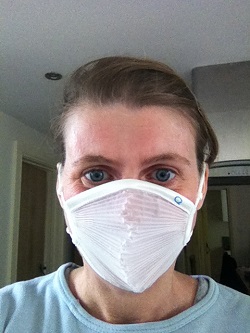Re-flooring your home can be great fun, and it’s a fantastic way to breathe fresh life into your living space. But while we’re on the subject of breathing, it’s also worth remembering the impact that a floor can have on one’s allergies. If you’re investing in a new floor, there are plenty of different options to consider; the right floor could help your allergies to recede considerably, while a poor choice can make things go downhill very quickly.
Here are the three well-known allergies that an ill-considered flooring decision can compound:
- Allergic Rhinitis
Dust, pollen, and other allergens thrive on certain floors. If you don’t get something that’s appropriate for your nasal issues, your home might end up causing more sneezes than a grassy field in the height of summer. - Asthma
Some floors can harbour mould spores and the like, especially in a high-moisture environment. Add that to all the usual allergens and you may find yourself reaching for your asthma pump a lot more often. - Eczema
If you suffer from eczema and your living room floor is teeming with allergens, there’s a very good chance that your skin will flare up when you spend too long around it.
So which floors are best for allergy sufferers? And which are best avoided? A cursory bit of internet research is sufficient to take carpets out of the running; while there is something to be said for their ability to trap allergens that are floating around the room, it’s not like that dust and pollen goes anywhere once it’s stuck to your carpet. If you don’t want your floor to be the foundation for some kind of dust mite metropolis, you’d do well to steer clear of carpeting, although a low pile carpet can be okay if you vacuum often. This won’t completely eliminate your allergic aggressors, but if you do it on a regular basis then it should keep them at bay.
As a rule, smooth, solid flooring makes it far harder for allergens to hide. Even if you’ve written off carpeting as a feasible flooring choice, there are still plenty of suitable options: laminate, vinyl, solid wood, bamboo, tiles, et cetera, et cetera. Each of these products is smooth and easy-to-clean, offering dust mites and parasites very little in the way of asylum. So, are all options as good as each other?
Apparently not. While these floors are pretty good at sticking it to the usual domestic allergens, some of them may bring a few allergens of their own into the equation. Vinyl flooring, for example, is sometimes treated with chemicals as part of the manufacturing process; if these chemicals are still present in the product by the time you take it home, you may end up inhaling the fumes and that is not good for asthma and other breathing problems. This sometimes applies to laminate floors, too, and even bamboo flooring – with its sparkling reputation as an eco-friendly, allergy-kind slice of nature – isn’t entirely faultless on the chemical front. Some companies use formaldehyde in the production of their bamboo products, and once again, formaldehyde fumes and asthma don’t make happy bedfellows. You don’t want your home to be covered in chemicals any more than you want it crawling with dust mites!
This isn’t to say that vinyl, laminates and the like should be avoided at all costs. On the contrary, these are durable, cost-effective products that tend to be far better for allergies than carpeting; you just have to make sure that you’re purchasing a high-quality product, one that isn’t covered in chemical remnants that could come back to haunt you.
So here’s the allergy-appropriate flooring formula in its simplest form:
NATURAL PRODUCTS + EASY TO CLEAN = PERFECTION!
Even solid wood flooring (perhaps the most anti-allergy flooring product of them all) will bring sneezes and scratches if you don’t keep it clean, but dust that has settled on a solid wood surface is far easier to hoover up or wipe away than dust that has worked its way into the coils of your carpet. As long as you’re buying your floor from a trusted, reliable supplier, you shouldn’t even have to worry about the natural side of things; those chemicals and the fumes they engender will only come with low-grade products.
So be smart when you’re choosing a new floor and make sure you’re not giving your inflammatory foes anywhere to hide!
This article was written by Joel Dear (weary eczema sufferer) on behalf of Floormaker, a UK-based flooring supplier with a wide variety of floors to choose from.













I am allergic to maple and oak trees. I assumed that was just the pollen. We just had maple wood flooring delivered snd I’ve had a stuffy nose since. Is it possible to be allergic to maple engineered flooring?
Hi Dawn, I would have thought not… I’m allergic to the pollen of many trees but have never reacted to the solid wood version of them. But you never know. If the flooring is dusty from being cut there could possible be fibres getting into the air. I hope that once it’s laid and in situ you don’t have issues. Keep me posted! Is it treated or varnished or protected?